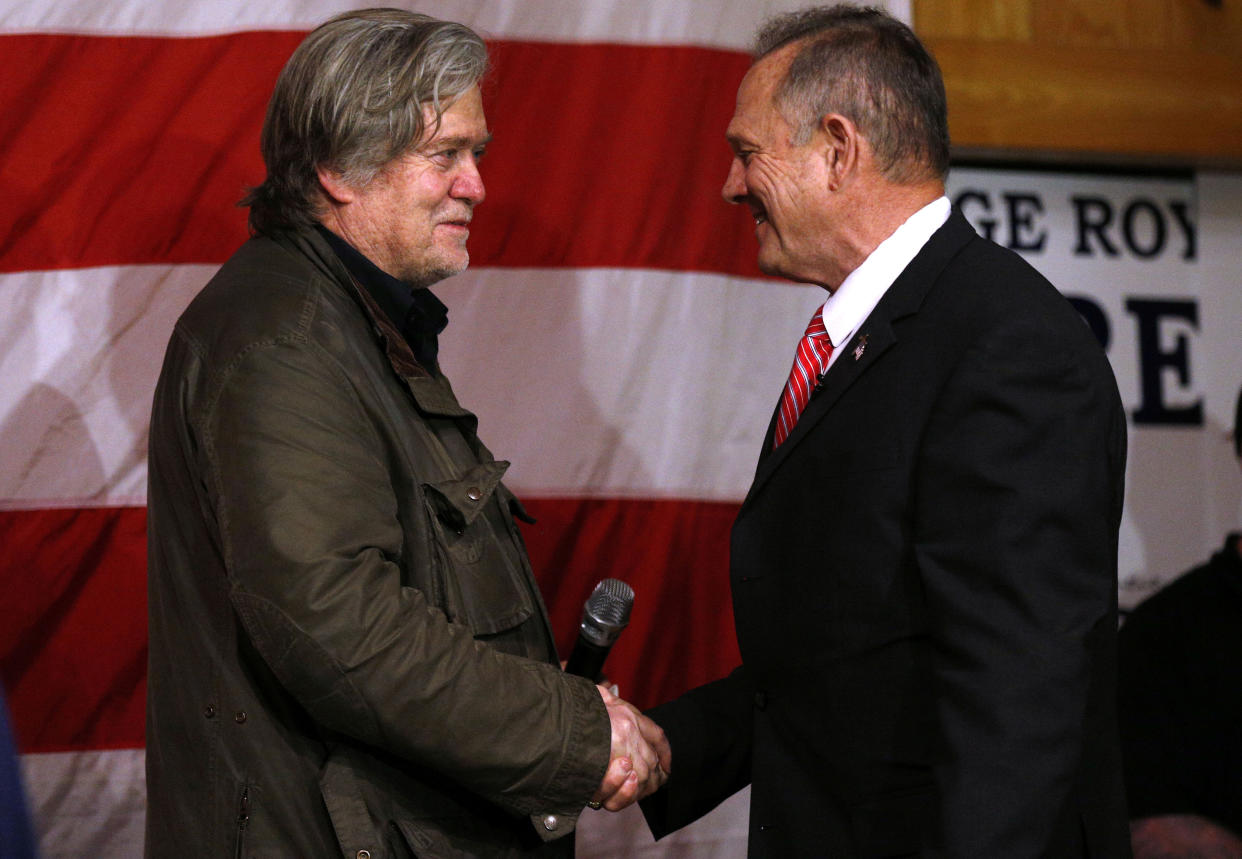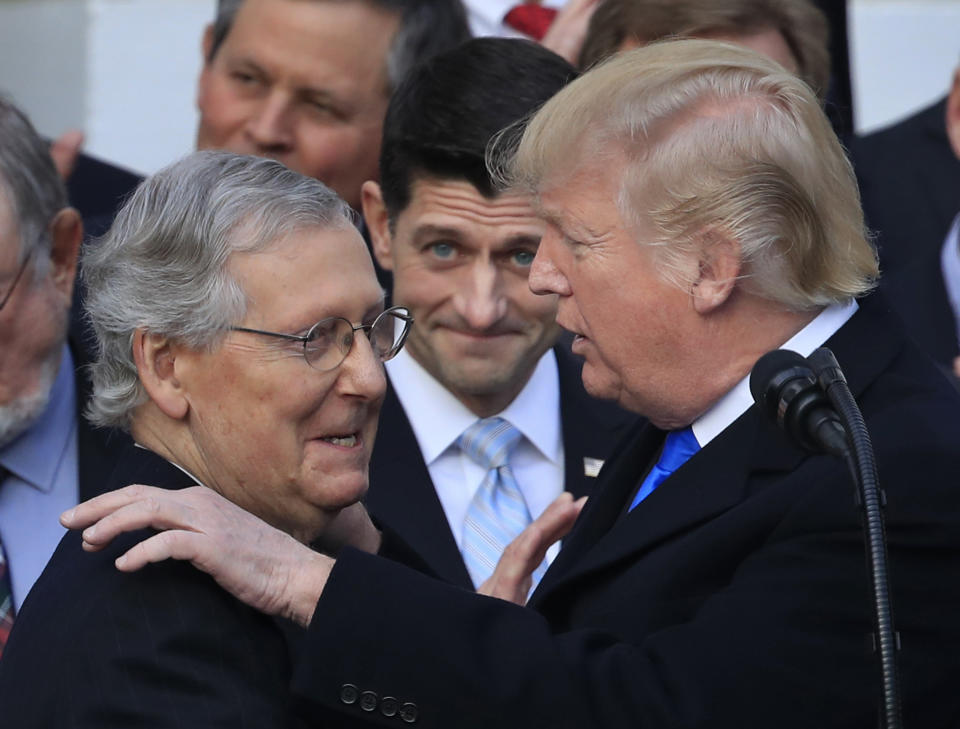The Roy Moore debacle drove a wedge between Trump and Bannon

Steve Bannon no doubt hoped that Roy Moore’s loss in the Alabama senate race would be no more than a speed bump in his political battle with Senate Majority Leader Mitch McConnell.
But now, in the wake of President Trump’s bone-rattling rebuke of Bannon on Wednesday (in response to Bannon’s provocative remarks about the Trump campaign, as quoted in a new book), the Moore debacle is taking on more the appearance of a train wreck. It weakened Bannon’s standing with Trump’s base, giving McConnell an opportunity to redirect Trump’s ire from himself to Bannon.
The label of “Trump’s enemy on the right” has now been firmly planted on Bannon’s chest, after Trump denounced his former adviser on Wednesday in a 266-word statement that was unique in the annals of presidential history for its level of vindictive rage.
“Steve Bannon has nothing to do with me or my Presidency,” Trump said in the statement, which went on to proclaim that Trump and “Republican members of Congress and candidates,” but not Bannon, want to “take our country back and build it up, rather than simply seeking to burn it all down.”
McConnell’s personal campaign arm tweeted out an animated picture of the majority leader sitting behind his desk and breaking into a wide grin.
— Team Mitch (@Team_Mitch) January 3, 2018
Immediately after Moore’s loss to Democrat Doug Jones in the special election for the U.S. Senate, McConnell’s allies moved to label Bannon — who supported Moore against Trump’s candidate, Luther Strange, in the Republican primary — as the chief impediment to Trump’s agenda.
“Not only did Steve Bannon cost us a critical Senate seat in one of the most Republican states in the country, but he also dragged the President of the United States into his fiasco,” wrote Steven Law, who runs a super-PAC aligned with McConnell, the Senate Leadership Fund.
Former McConnell chief of staff Josh Holmes said that only “a complete break from Bannonism in GOP primaries can reunite the party behind the Trump agenda and salvage the midterms.”
This was just what Bannon said about McConnell in August. McConnell, R-Ky., and House Speaker Paul Ryan, R-Wis., “do not want Donald Trump’s populist, economic nationalist agenda to be implemented,” Bannon said on “60 Minutes.”
“I’m going to be his wingman outside for the entire time … to support Donald Trump,” Bannon said.
After Moore lost, Bannon was on thin ice, with much less margin for error. He had already violated a red line laid down in October, when his allies said Bannon would only endorse Senate candidates who promised to oppose McConnell for majority leader. Of the candidates with Bannon’s backing, those who signed up for the anti-McConnell crusade tended to be lesser-quality candidates. Bannon’s picks in the most competitive races — such as Matt Rosendale in Montana and Attorney General Patrick Morrissey in West Virginia — were either openly supportive of McConnell or staying out of the fray.
The passage of a tax bill by Congress, which Trump signed into law at the end of December, also boosted McConnell’s standing in Trump’s eyes, and thereby undercut Bannon.
And on Wednesday, in the aftermath of the Trump eruption, Republican candidates in contested primaries began to exploit Bannon as a wedge issue. Just a few months ago, Bannon’s support was sought after. But on Wednesday, it was treated as a liability.

Rep. Evan Jenkins, who is running against Morrissey in the Republican primary to oppose Sen. Joe Manchin, D-W.Va., called on the attorney general to “disavow” Bannon for what Jenkins called “vicious attacks on President Trump and his family.”
Jenkins was referring to comments by Bannon to reporter Michael Wolff in a forthcoming book. In excerpts published Wednesday morning, Bannon called a meeting during the 2016 campaign between Donald Trump Jr., Trump son-in-law Jared Kushner and an informal representative of the Russian government “treasonous.”
Bannon said that Robert Mueller’s investigation into potential collusion between the Trump campaign and the Russian government would “crack Don Junior like an egg on national TV.”
According to the excerpts, Bannon went on to say he was certain that the Russians at the now-infamous meeting at Trump Tower were introduced to the candidate himself — directly contradicting Trump’s numerous assertions that he had no contact with Russians during the campaign.
Read more from Yahoo News:



